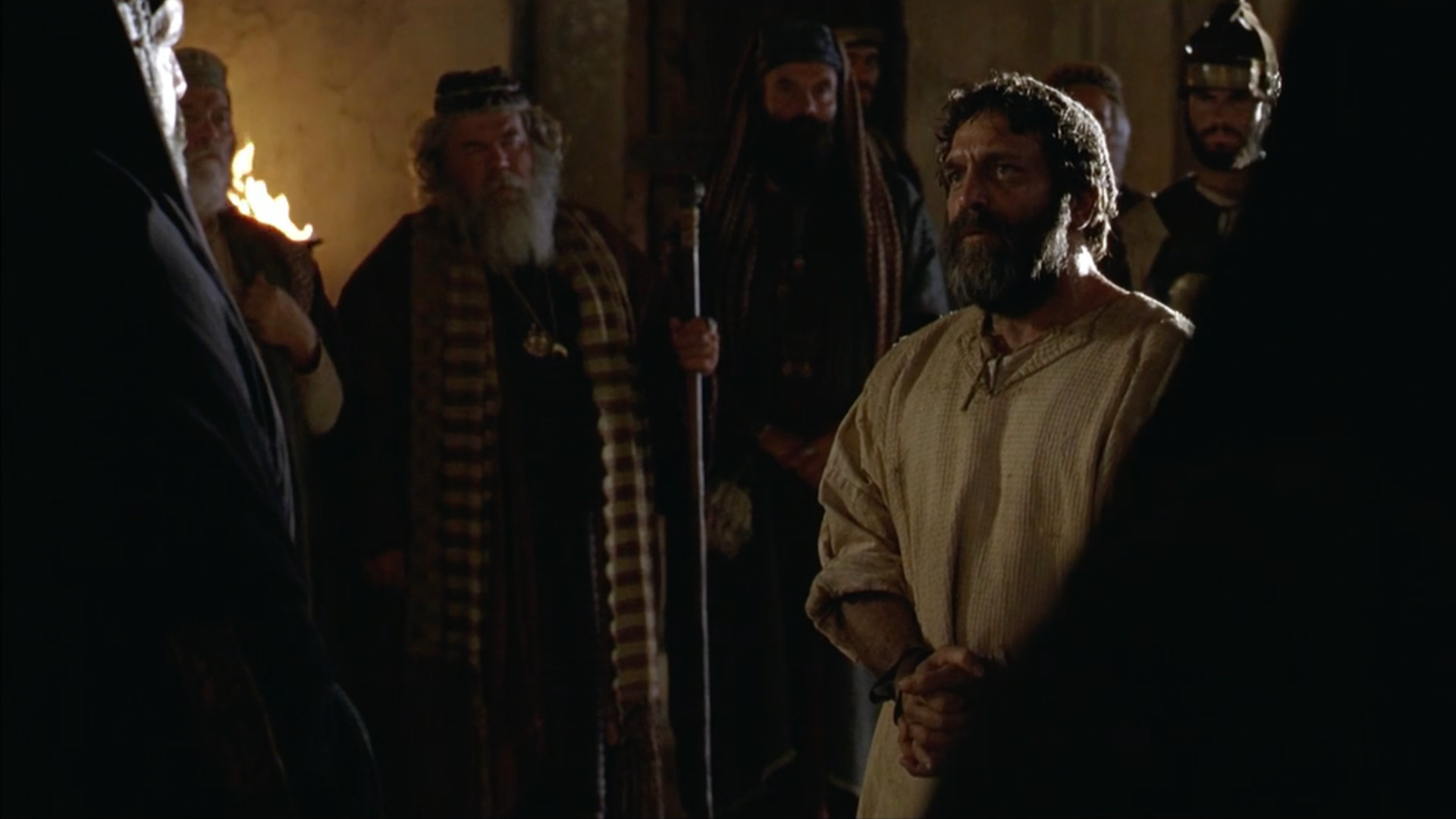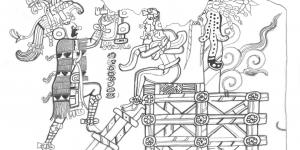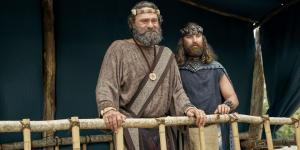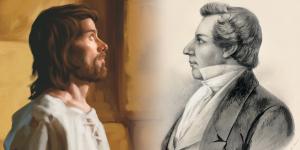You are here
Why Did Stephen Rehearse Israelite History?

Acts 7:52
The Know
As the Church quickly grew in Jerusalem, the Twelve Apostles called seven men to assist with the temporal needs of the Saints, especially caring for the Greek widows (see Acts 6:1–6). One of these seven men, Stephen, was “full of faith and power, did great wonders and miracles among the people” (Acts 6:8). But certain Jews from Egypt and Turkey started arguing with Stephen, and although Stephen withstood their arguments, they secretly enlisted a few men to falsely swear that they had heard Stephen blaspheme against Moses and even against God (Acts 6:11). Based on their accusations, Stephen was arrested and accused of blasphemy—a capital offense. He was brought before the council, where he would offer one of the most well-known sermons recorded in the book of Acts.1
Throughout his speech, Stephen refers to various events in Israelite history. As noted by Andrew C. Skinner and D. Kelly Ogden, “Stephen reviews the history of Israel to show how great persons, events, doctrines, and practices were all types and shadows of Christ, and how all the past culminates in the coming of the Messiah, Jesus.”2 In so doing, Stephen further shows how Israel’s history is a cycle of apostasy and restoration—Israel has a long history of rebellion against the Lord, culminating in its rejection of the Messiah.
Stephen begins his defense by referring, in contrast, to the obedience of Abraham: “The God of glory appeared unto our father Abraham, when he was in Mesopotamia, before he dwelt in Charran, and said unto him, Get thee out of thy country, and from thy kindred, and come into the land which I shall shew thee” (Acts 7:2–3). Because Abraham obeyed the Lord, a covenant was made with him that his seed would inherit the promised land (see Acts 7:5–7). Abraham’s faith and obedience set a standard for his descendants that would, unfortunately, largely be ignored.
Stephen then moves on to discuss how the sons of Jacob, “moved with envy, sold Joseph into Egypt: but God was with him” (Acts 7:9). New Testament scholar Vincent K. H. Ooi remarked that this incident shows how “envy and hatred were already gripping the people of promise at this early stage threatening the unfolding of the promise of God.”3 However, God used Joseph’s misfortune to save his family from the famine in Canaan.
“Stephen’s retelling of Joseph’s journey is one of God providentially bringing good out of the evil intention of the patriarchs and appointing the rejected one over those who rejected him,” Ooi observes. “Abraham’s descendants survived because God delivered them through the one they rejected. Joseph, rejected by his own brothers by God’s choice, became the innocent sufferer and saviour of his people. This is a pattern reflected in the stories of Moses, Jesus, and Stephen within Acts 6–7.”4 Furthermore, Joseph serves as a type of Christ in his response to his brothers coming to Egypt for food during the hard famine: like Jesus, Joseph responded graciously to those who rejected him, ensuring their salvation.5
Moses, another prophetic type of Christ, was likewise rejected multiple times by the Israelites. This occurs, as Stephen shows, even before Moses fled Egypt: “And seeing one of them suffer wrong, he defended him, and avenged him that was oppressed, and smote the Egyptian: for he supposed his brethren would have understood how that God by his hand would deliver them: but they understood not” (Acts 7:24–25). However, when Moses attempted to reconcile two Israelites the following day, he was rejected and soon needed to leave Egypt (see Acts 7:26–29).
Then, after Moses returned to Egypt and had led the children of Israel out of Egypt, he was again rejected on a much larger scale. The children of Israel “thrust him from them, and in their hearts turned back again into Egypt, saying unto Aaron, Make us gods to go before us: for as for this Moses, which brought us out of the land of Egypt, we wot not what is become of him” (Acts 7:39–40). The rejection of Moses as a prophet in favor of false gods and Egyptian lifestyle became a repeated struggle throughout the Israelites’ wandering in the wilderness.
The Israelites would continue to reject the Lord for idols throughout their history, causing them to be punished and exiled on multiple occasions (see Acts 7:42–43). However, the Lord did not completely reject His people and would continue to bless them and gather them as they repented.
Finally, however, the greatest rejection would take place: just like Joseph was rejected by his brothers, just like Moses was repeatedly rejected by the children of Israel, Jesus Christ was ultimately rejected and killed by the present generation of the house of Israel. This led to Stephen offering the stinging rebuke, “Ye stiffnecked and uncircumcised in heart and ears, ye do always resist the Holy Ghost: as your fathers did, so do ye. Which of the prophets have not your fathers persecuted? and they have slain them which shewed before of the coming of the Just One; of whom ye have been now the betrayers and murderers” (Acts 7:51–52).
Stephen boldly states that the death of Jesus was ultimately caused by the greatest act of treachery committed throughout Israel’s tumultuous history, showing how the people who were responsible, not Stephen, were the ones who were speaking against the law, Moses, and the temple, each of which pointed forward to Jesus Christ. As Ooi noted, Stephen’s indictment “appears to suggest that the killing of Jesus is related to, if not a culmination of, the people’s rejection of the law.”6
Stephen would soon find himself to be the latest in Israel’s continued rejection of prophets, being stoned for his testimony that “I see the heavens opened, and the Son of man standing on the right hand of God” (Acts 7:56).
The Why
As Stephen, the first Christian martyr, shows throughout his pleading sermon, God has called and continues to call prophets who testify of Jesus Christ. Many of these prophets point to Jesus Christ through more than just their message, often emulating His life and, on occasion, reflecting His rejection and death. Despite the rejections they face, prophetic messengers such as Stephen stand firm in their beliefs and testify to the world what they know to be true. And God the Father and His resurrected Son stood as two witnesses in his defense, even though, sadly, Their divine affirmation was not accepted.
Furthermore, we can recognize how Stephen portrays God’s work through His powerful sermon. Even as God’s children are not always faithful to His covenants and gospel, the Lord is always at work for the salvation of all. He continues to work in His vineyard, seeking the “immortality and eternal life” of all His children (Moses 1:39). This is made available to us conditionally upon our acceptance of the Lord’s will in our lives and our acceptance of His messengers. We must follow the prophet and other appointed leaders of the Church if we hope to gain any lasting peace in this life or the life to come, thereby learning from the mistakes others have made throughout history and choosing to follow the Lord instead.
Further Reading
D. Kelly Ogden and Andrew C. Skinner, Verse by Verse: The New Testament, 2 vols. (Salt Lake City, UT: Deseret Book, 1998), 2:45–47.
Richard Neitzel Holzapfel and Thomas A. Wayment, Making Sense of the New Testament: Timely Insights and Timeless Messages (Salt Lake City, UT: Deseret Book, 2010), 283–284.
- 1. The notes that Stephen was arrested after performing miracles and that the people “were not able to resist the wisdom and the spirit by which he spake” (Acts 6:10) call to mind the trial of the Savior, who was arrested for similar causes with similar false charges brought against Him. See Book of Mormon Central, “Why Was Jesus Put On Trial and Crucified? (Mark 15:1),” KnoWhy 676 (June 20, 2023).
- 2. D. Kelly Ogden and Andrew C. Skinner, Verse by Verse: The New Testament, 2 vols. (Salt Lake City, UT: Deseret Book, 1998), 2:45.
- 3. Vincent K. H. Ooi, Scripture and Its Readers: Readings of Israel's Story in Nehemiah 9, Ezekiel 20, and Acts 7 (University Park, PA: Pennsylvania State University Press, 2015), 154.
- 4. Ooi, Scripture and Its Readers, 155.
- 5. See Ooi, Scripture and Its Readers, 155–156.
- 6. Ooi, Scripture and Its Readers, 176.
KnoWhy Citation
Related KnoWhys
Subscribe
Get the latest updates on Book of Mormon topics and research for free





